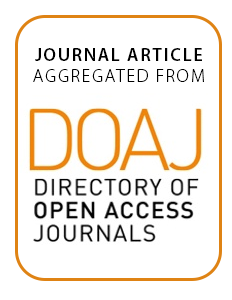Focal point
Location
The German Chapter of the International Association of Landscape Ecology (IALE) connects landscape researchers, planners, and other interested persons to support a scientifically and planning-related sound development of human-environment relations. IALE-D supports scientific principles of landscape science and sustainable landscape management, their application in practice, as well as the communication of landscape ecological questions.
The International Association for Landscape Ecology was founded in 1982 in the Slovakian town Piestany, to promote transdisciplinary research and exchange of experience in the field of landscape ecology as a scientific basis for landscape planning and environmental management. It strives for close contact between natural and social sciences, as well as for a connection between science and practice. On this basis, theories, models, and empirical data can be combined and merged so that a better understanding of landscape and sustainable landscape management becomes possible.
The foundation of our chapter “IALE-D“ took place at May 5, 1999 in Basel (Switzerland). Like other regional chapters, IALE-D builds on the expertise of its members, their ideas, and new ways of cooperation.
Members:
Resources
Displaying 1 - 5 of 53The Value of Traditonal Rural Landscape and Nature Protected Areas in Tourism Demand: A Study on Agritourists’ Preferences
This study focuses on how traditional rural landscape and proximity to a Natura 2000 Site of Community
Importance (SCI) might influence consumers’ choice of an agritourism farm for a weekend stay. Data were
collected in Umbria region’s (Italy) agritourism farms in 2014 by interviewing 160 tourists. Results from a
discrete choice experiment reveal that the most important feature affecting the interviewees’ propensity to
pay a premium price to stay in an agritourism farm is the well-preserved traditional landscape (willingness to
Urban Landscape Evolution as a Consequence of an Invasive Pest: The Case of a Small Sicilian Town
The Red Palm Weevil (RPW), after its accidental introduction in Italy in 2005, determined a progressive
disruption of Canary palms mostly in the central and southern regions. As it is difficult to undertake the
management of this pest, the possibility of substituting the killed/symptomatic palms with other ornamental
trees has been recently discussed. In this context, understanding the citizens’ needs about green areas can
improve the management of public parks and urban greening. Involving citizens on the natural resource
Does the Ecosystem Service Concept Reach its Limits in Urban Environments?
There is a rapidly growing body of literature on the theory about the ecosystem service concept and the practical assessment of
ecosystem services in different contexts ranging from natural to urban environments. Yet, where does the concept reach its limits?
This paper critically reflects the application of the ecosystem service concept in urban environments illustrating the handling of
urban structures (incl. built-up areas) and the risk that the normative principle of the concept could be missed. It is shown that in
Contributing to the cultural ecosystem services and human wellbeing debate: a case study application on indicators and linkages
Inadequacies in the indication of cultural ecosystem services (CES) are a hindrance in assessing their
comprehensive impacts on human wellbeing. Similarly, uncertainties about the quantity and quality of
CES, in real time and space, have hampered the ability of resource managers to precisely take responsive
management actions. The aim of the study is to demonstrate, how CES indicators can be identified and
qualified in order to link CES to human wellbeing, and to integrate them into the ‘ecosystem services cascade’
Agrosystem Services: An Additional Terminology to Better Understand Ecosystem Services Delivered by Agriculture
To discriminate between the contributions of ecosystems and the human subsidies to agricultural systems,
we propose using an additional terminology to bring clarification into the controversial discussion about i)
ecosystems versus agrosystems and ii) ecosystem services versus agrosystem services. A literature review
revealed that with the exception of some very recent publications, this has not yet been sufficiently
reflected, neither within the scientific nor in the policy discussion. The question remains whether to spoil


